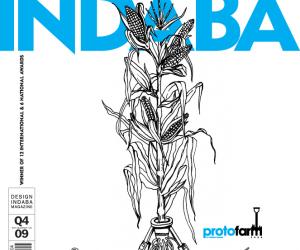First Published in
“It’s about time,” proclaimed Lisbon-based design, architecture and creativity biennale, ExperimentaDesign, which celebrated its 10th anniversary this year. One of its four core exhibitions, EXD09’s Timeless invited several nations to answer the pertinent question of “How can ‘less’ become an enlightening value instead of a restrictive fact?”
The Timeless exhibition at the Museu do Oriente featured work in sections corresponding to the countries that took up the challenge – India, Portugal, South Africa and the United Kingdom – framed by the input of the respective curators. Each country’s participation was distinct but jointly addressed the challenges facing contemporary society, with the issue of sustainability taking precedence and the current economic and environmental situation framing the scenario. Countries all articulated a fervent desire to distinguish and promote national identity through design.
India concentrated on its master crafts and low-tech manufacturing, producing ultra-modern luxury items for global markets by applying long-standing traditional techniques to delicate textures. Delving deeper into these designs, a noble wish to rejuvenate these traditional crafts in remote parts of the country is revealed. This is the context within which designers Gunjan Gupta and Ayush Kasliwal engage with artisans in ethical collaborations to restore skill, respect and livelihood to the handmade through excellence in manufacture and aesthetic.
In turn, South Africa’s creative community tackled the country’s socio-economic issues, primarily concerning housing, HIV and access to water. In a noteworthy representation of uncomplicated products and projects, designers raised awareness and provided solutions to domestic problems that make good case studies for any developing economy in the world. The work on show was a selection from the SOUTH exhibition that launched at Design Indaba Expo 2009.
In contrast, the Portuguese collection reflected on consumerism, questioning whether the economic and social “added value” is and would be the only “timeless” feature in the design process. The result was a collection of designs that symbolised national loyalty. For instance, Berlin-based Portuguese designer Albio Nascimento simplifies processes to develop mass-produced items of traditional Portuguese objects, creating affordable and accessible serial products.
Going beyond the gallery, the British contribution to Timeless explored and expressed the idea of “place” within “time” through a series of commissions that are specific responses to the city of Lisbon’s resources, identity and location. Six designers merged their practices with local skills and vernacular. Resident engagement in various Lisbon communities was encouraged resulting in an interesting presentation of the relationship between creator, object and user. In a move to avoid making new things and turning away from the new, the pieces take a fresh look at the past.
The EXD09 Biennale ran in Lisbon from 9 September to 8 November 2009. Website: www.experimentadesign.pt



















